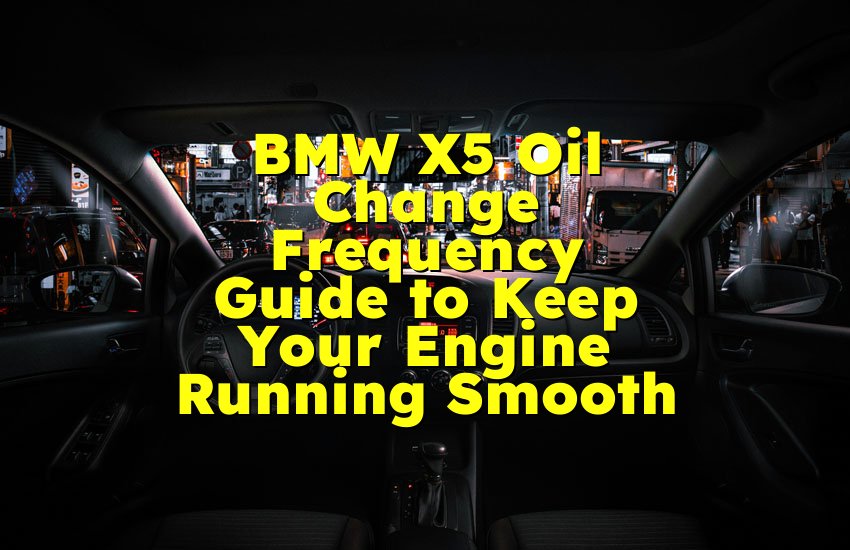As an Amazon Associate, I earn from qualifying purchases at no extra cost to you.
Will a Car Start with a Bad Alternator? Discover the Shocking Truth!
A car will not start with a bad alternator. A malfunctioning alternator will not be able to charge the battery, causing the car to fail to start.
This often leads to dimming headlights, difficulty in starting the vehicle, and a decrease in electrical functions. If you suspect an issue with your alternator, it is crucial to address it promptly to avoid being stranded on the road. Ignoring the problem can lead to more extensive damage and additional expenses.
Regular maintenance and prompt attention to warning signs can help prevent a bad alternator from causing a vehicle to fail to start. Understanding the symptoms and taking swift action can save you time, money, and inconvenience in the long run.
Symptoms Of A Bad Alternator
When it comes to car troubles, a bad alternator can cause a host of issues. Recognizing the symptoms of a bad alternator can help you address the problem before it leads to a complete breakdown. Here are some common signs that indicate your car's alternator may be on the fritz.
Dimming Headlights
One of the most obvious signs of a failing alternator is dimming headlights. If you notice that your headlights are not as bright as they used to be, especially when the engine is idling or when you’re driving at low speeds, it could be a warning sign that the alternator is not charging the battery properly.
Dashboard Warning Lights
Another indicator of a bad alternator is the illumination of dashboard warning lights. Pay attention to any illuminated warning lights, especially the battery light. This light often indicates that the alternator is not functioning properly and the vehicle is running on battery power alone.
It's important to address these symptoms promptly. Ignoring a failing alternator can lead to a dead battery, leaving you stranded on the side of the road.

Credit: mishtalk.com
Can A Car Start With A Bad Alternator?
Many drivers wonder whether a car can start with a bad alternator. The alternator plays a crucial role in providing power to the car’s electrical system and charging the battery. Let’s take a closer look at whether a car can start with a faulty alternator.
Initial Starting Ability
In some cases, a car can start with a bad alternator. The initial starting ability may not be affected as the remaining charge in the battery can power the car to start. However, this initial start may be accompanied by warning lights on the dashboard indicating a problem with the charging system.
Gradual Loss Of Power
Over time, a car with a bad alternator will experience a gradual loss of power. As the battery loses its charge, the car’s electrical components may begin to malfunction. This can lead to dimming headlights, erratic performance of the electrical systems, and eventually result in the car stalling due to insufficient power.
Consequences Of Driving With A Bad Alternator
If you ignore a bad alternator, it can lead to severe consequences while driving. It’s essential to be aware of these risks to avoid potential hazards on the road.
Battery Damage
Driving with a bad alternator can cause extensive battery damage due to overworking and not being able to recharge properly.
Stalling On The Road
A bad alternator can result in your car stalling on the road unexpectedly, putting you in dangerous situations and causing inconvenience.

Credit: www.facebook.com
Diagnosing A Bad Alternator
If you’re experiencing car trouble, one possible culprit could be a bad alternator. The alternator plays a crucial role in keeping your vehicle running by generating electrical power and charging the battery while the engine is running. A faulty alternator can lead to various issues like dimming lights, a drained battery, or even a car that won’t start. To determine whether or not your alternator is to blame, you need to perform a few diagnostic tests. In this section, we’ll cover two common methods to help you diagnose a bad alternator: the Multimeter Test and Visual Inspection.
Multimeter Test
To conduct a Multimeter Test, you’ll need a multimeter tool, which measures electrical currents and voltage. Start by setting the multimeter to the DC voltage scale and connect the positive (red) lead to the positive terminal of the battery and the negative (black) lead to the negative terminal.
With the engine off, a fully charged battery should read around 12.6 volts. If the reading is significantly lower, it suggests a weak battery or alternator problem. However, even if the voltage is normal, it’s still an essential step to determine the condition of the alternator.
Next, start the engine and let it idle. The multimeter should now display a voltage between 13.8 to 14.4 volts, indicating that the alternator is functioning correctly. If the voltage remains below 13 volts or exceeds 15 volts, it’s likely that the alternator is defective and should be replaced.
Visual Inspection
A visual inspection is another effective way to diagnose a bad alternator. Begin by visually examining the alternator for signs of physical damage or loose connections. Look for frayed or damaged wires, loose or corroded terminals, and any apparent belt issues.
Inspect the drive belt that connects the alternator to the engine’s crankshaft. It should have the proper tension, be free from cracks, and exhibit no signs of excessive wear. If the belt looks worn or damaged, it needs to be replaced as it can affect the alternator’s performance.
Additionally, check for any unusual smells emanating from the alternator, which might indicate an internal problem. Burning smells or the distinct odor of melted plastic can be a sign of overheating or electrical issues, necessitating professional attention.
By conducting a multimeter test and visually inspecting the alternator, you can usually identify whether or not it’s functioning properly. It’s worth noting that these methods are not foolproof, and if you’re still unsure about the health of your alternator, it’s best to consult a professional mechanic for a more accurate diagnosis.
Replacing A Faulty Alternator
Dealing with a bad alternator can be a frustrating experience for any car owner. When your car fails to start and you suspect that the alternator is the culprit, it’s important to address the issue promptly. But what are your options when it comes to replacing a faulty alternator? Should you take on the task yourself or seek the help of a professional mechanic? And what cost considerations should you keep in mind? Let’s explore the answers to these questions.
Diy Vs. Professional Mechanic
If you’re a handy individual with some knowledge of automotive repairs, you might be tempted to replace the alternator yourself. While a DIY approach can save you money, it’s essential to evaluate whether you have the necessary skills and tools to complete the job successfully. Replacing an alternator can be a complex task that requires technical know-how and experience. Additionally, some car models have specific requirements that may necessitate specialized tools. Before taking on the challenge, assess your abilities realistically to avoid potential complications.
On the other hand, opting for a professional mechanic ensures that the job is done correctly and efficiently. Mechanics have the experience and expertise to diagnose the alternator issue accurately and provide a reliable solution. They possess the necessary tools and equipment to complete the replacement effectively. Hiring a professional not only saves you time and effort but also gives you peace of mind, knowing that your car is in capable hands.
Cost Considerations
When deciding between a DIY project and hiring a professional, cost is a crucial factor to consider. While attempting the replacement yourself may seem cost-effective, it’s important to weigh the potential risks and expenses associated with DIY repairs. Making mistakes during the process can lead to further damage, resulting in higher repair costs in the long run. In contrast, a professional mechanic may charge for their services, but the expertise and quality of work they provide often justify the expense.
It’s also worth considering that professional mechanics typically have access to OEM (Original Equipment Manufacturer) parts, which are specifically designed for your car model. These parts may be of higher quality and have better longevity compared to aftermarket alternatives. While OEM parts may cost more upfront, they can provide long-term benefits by reducing the likelihood of future breakdowns or component failures.
In conclusion, whether you replace a faulty alternator yourself or seek the assistance of a professional mechanic, both options have their pros and cons. Consider your abilities, the complexity of the task, and the potential costs involved before making a decision. Ultimately, prioritizing the reliable functioning of your car and ensuring the safety of yourself and others on the road should guide your choice.
Preventive Maintenance For Alternator Health
Regular Checks
The alternator plays a crucial role in your car’s electrical system.
Ensuring Proper Belt Tension
Maintaining proper belt tension is vital to the health of your alternator.
Alternator Vs. Battery Issues
When dealing with car troubles, it’s essential to understand the distinction between alternator and battery issues. Both are critical components of a vehicle’s electrical system and play crucial roles in ensuring a smooth start and operation of the car. Below, we’ll delve into the Distinguishing Symptoms and the Impact on Starting for each, starting with signs of trouble that distinguish the two.
Distinguishing Symptoms
To identify whether the problem lies with the alternator or the battery, it’s important to pay attention to specific symptoms. A dead battery may exhibit signs such as dimming headlights, difficulty starting the engine, and slow power window operation. On the other hand, a faulty alternator might be indicated by dimming or flickering dashboard lights, strange smells, or a warning light on the dashboard. Understanding these distinctive signs can help in diagnosing the root cause of the starting issue.
Impact On Starting
The condition of the alternator and battery can significantly impact the car’s starting process. A bad battery may cause the engine to crank slowly or fail to start at all, even if the lights and other electrical components are operational. Conversely, a failing alternator can lead to a drained battery, resulting in similar starting issues. In this case, if the alternator is not charging the battery while the vehicle is running, the battery’s capacity to start the engine will be compromised. Thus, it’s crucial to address both alternator and battery problems promptly to ensure a reliable starting mechanism.
Final Thoughts On Alternator Health
Importance Of Timely Repairs
Regular maintenance and timely repairs of your vehicle’s alternator are crucial to ensure the smooth functioning of your car. Ignoring signs of a bad alternator can lead to more serious issues in the long run. By addressing alternator problems promptly, you can prevent further damage to other electrical components of your vehicle.
Long-term Vehicle Safety
Ensuring the health of your alternator ultimately contributes to the long-term safety of your vehicle. A faulty alternator can result in power failure and cause your car to break down unexpectedly, endangering your safety and those of others on the road. By prioritizing the maintenance of your alternator, you can safeguard yourself from potential hazards while driving.

Credit: www.simonandschuster.com
Conclusion
A car may struggle to start with a bad alternator. Addressing this issue promptly can prevent further damage. Remember to regularly maintain and inspect your vehicle to avoid unexpected breakdowns. Stay proactive to ensure smooth driving experiences. Prioritize your car’s health for optimal performance.











